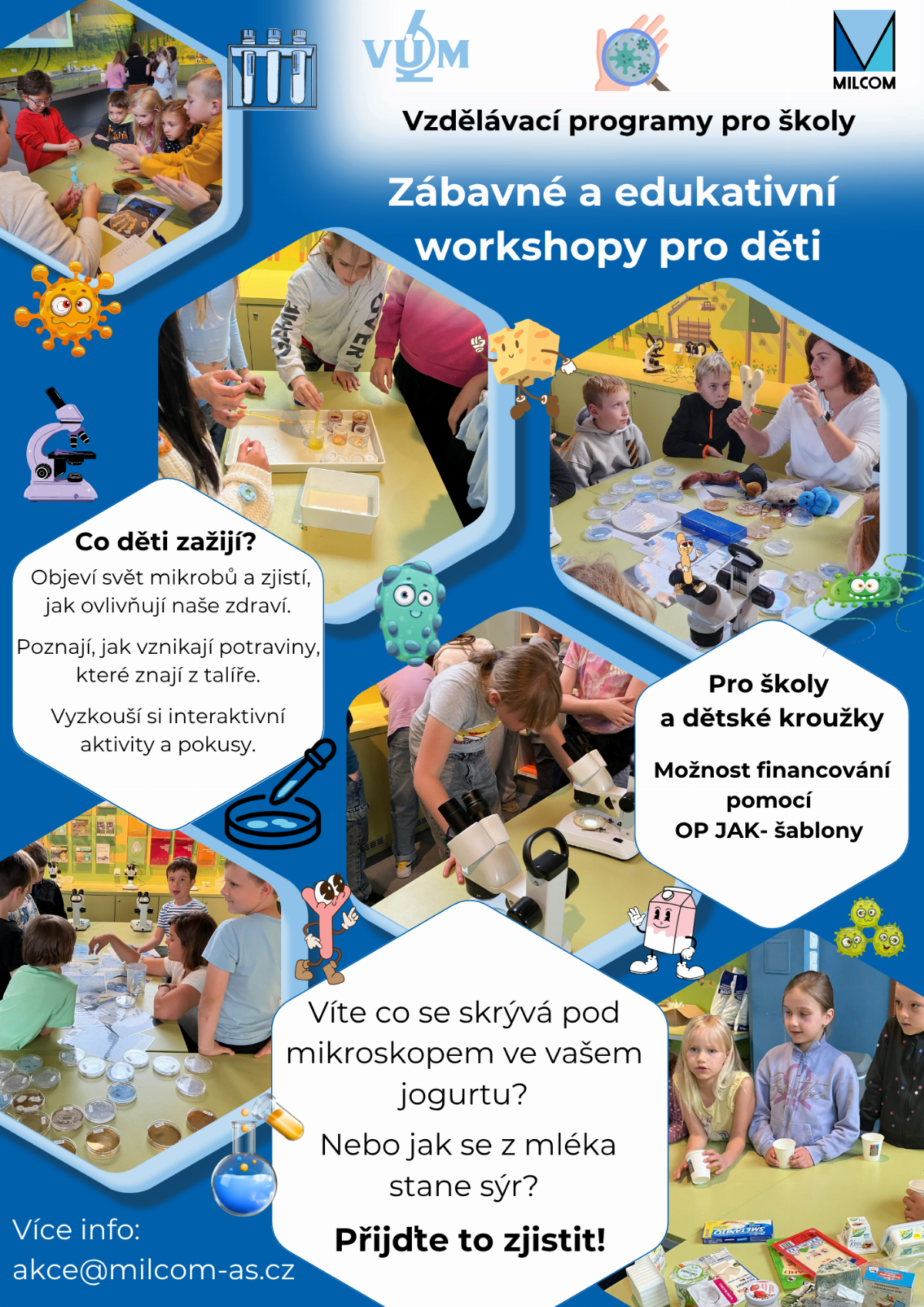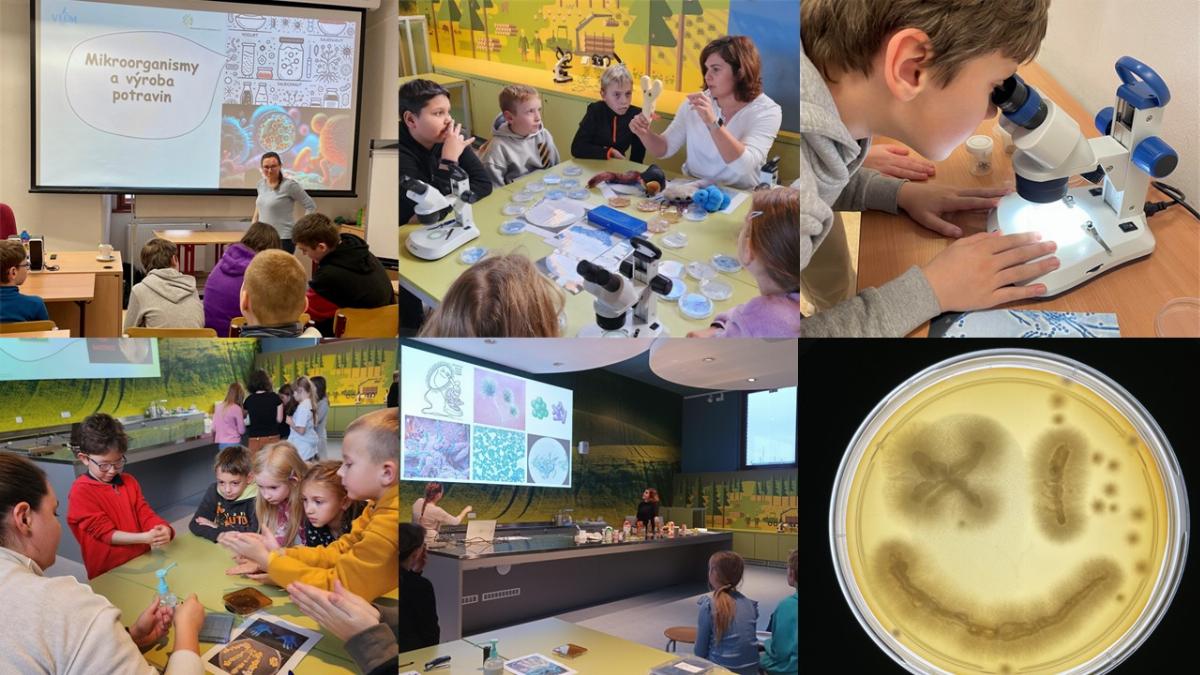Workshop objectives
- To familiarize children with microorganisms and introduce them to the basic groups (bacteria, yeast, fungi), their shapes, and characteristic properties.
- To explain the importance of microorganisms for humans—both positive (fermentation, microbiome, health) and negative (disease, food spoilage).
- To develop students' practical skills in observation, working with a microscope, and hygiene principles.
- To introduce foods that are produced using microorganisms – dairy products (yogurt, kefir, cheese), baked goods (bread, pastries), and other fermented products.
Workshop content
- Practical part (3 stations; 30-40 minutes):
- Station I – Hygiene: the importance of cleanliness, experiment with hands.
- Station II – Microscoping: observation of microorganisms under a microscope/binocular microscope.
- Station III – Products: demonstration of fermented foods and their uses.
- Conclusion (summary and discussion; 5 minutes) – review of key points, time for questions.
Practical activities
- Observation of prepared specimens of bacteria, molds, and yeasts under a microscope or binocular microscope; working with models of microorganisms.
- Hand hygiene experiment – handprint on culture medium or test with a UV lamp; after cultivation, photos of the results can be sent.
- Practical demonstration of the fermentation process.
- Demonstration and tasting of various types of fermented foods.
Outcomes for children
- They will be able to explain what a microorganism is and where they can encounter it.
- They will give examples of foods produced using microorganisms.
- They will understand the importance of hygiene for health protection.
- They will gain basic experience working with a microscope or binocular microscope.
- They will understand the principle of fermentation and its application in food production.
Note: The workshop is conducted in Czech.
To receive a price quote and reserve a date, please fill out the form below. After submitting the form, we will contact you with confirmation and additional information. 📄 Fill out the form
The program can also be adapted for older students (grades 7–9) upon request.


 cz
cz